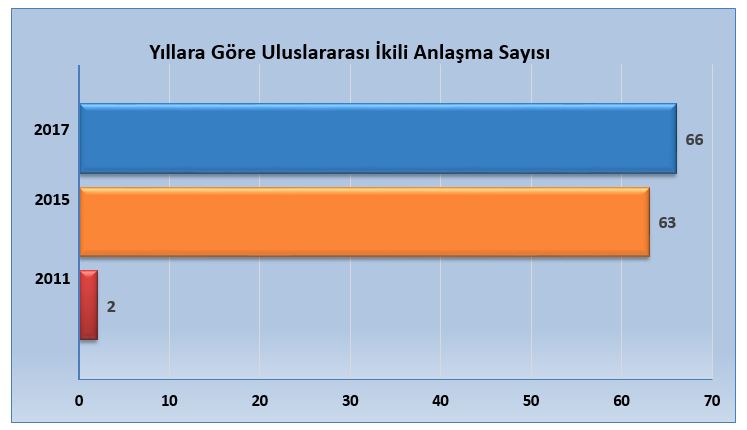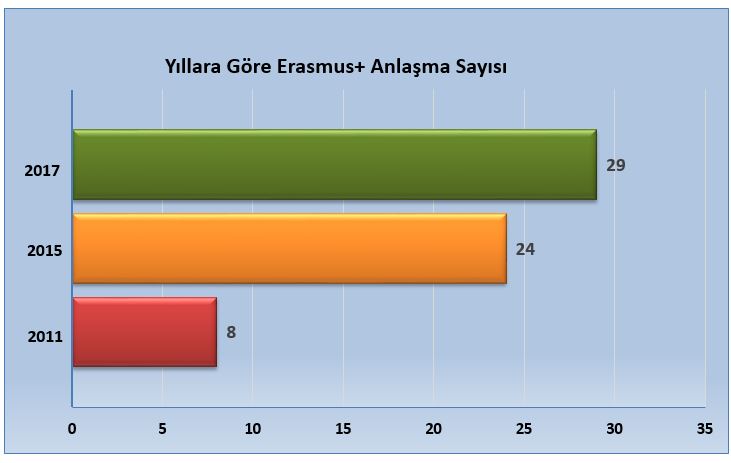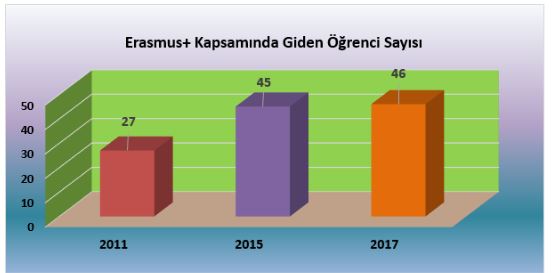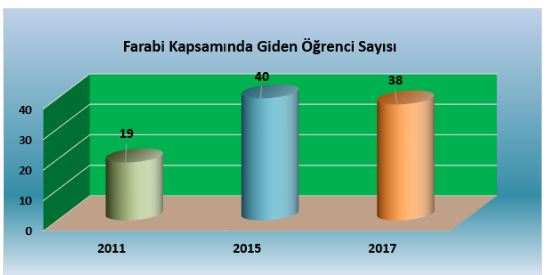Internationalization in higher education is a natural and inevitable result of globalization. Today, as an indication of the globalization of higher education experience, universities' internationalization in their strategy plans, global student mobility and globalization strategies, are among the fastest growing operational politics of our time.
According to the report prepared by the Center for Development Studies within the Ministry of Development, the number of international students in the world in the 1970s, which is around 800 thousand, has reached four and a half million today. It is predicted that this figure will double in 2020.
Many factors such as globalization and increase in transportation and access opportunities have created a global network of interaction in the field of higher education. The world is witnessing global mobility today. Cross-border student and academical mobility assure cultural fluidity. The integration of universities from different countries and continents with each other is an added value in terms of enriching the education-training environment and increasing the quality.
The number of international students studying in our country is around sixty thousand. The number of international students studying at Turkish higher education institutions is only one percent of the total number of international students in the world. A large part of these students come from countries with historical and cultural ties in close geographical areas. At this point, it is clear that our higher education system needs to be structured in a diversified, competitive structure and the quality-focused manner in order to increase international recognition.
Our University, which is aware of the importance of advancing in a rapidly globalizing world and being able to get out of national borders in order to have a say in international platforms and to be able to provide appropriate information, communication technology and human power in education in global competition and to be a "world university" has adopted internationalization as one of its main objectives in the framework of the vision of Turkish Higher Education in 2023, 2053 and 2071. In this respect, it attaches great importance to improving the quality of education and research in order to bring an international career to its students. While one side wishes that their students and staff recognize international cultures and educational environments and gain international experience; the other side aims to create a settlement area where the international interaction and communication is at a high level.
Undoubtedly, one of the most important elements of internationalization in universities is exchange programs. Exchange programs aim to bring together different cultures into academic and social pockets by strengthening cooperation among higher education institutions. Hitit University, believing in the universality of science and the importance of international interaction, has signed a number of agreements with universities abroad and the Erasmus + and Mevlana exchange programs on the way to becoming a "World University". International participation in organizing and participating in events is also increasing. Our university has signed agreements with a number of universities both abroad and in our country in the framework of bilateral or exchange programs, our students have been educated in a different university for one or two semesters and our academic staff have participated in foreign events such as training and teaching programs. The number of bilateral agreements that our university has made with international universities in 2011 was only 2, in line with the commitment of the university administration in this regard; this number has increased to 63 in 2015 and to 66 in 2017.



